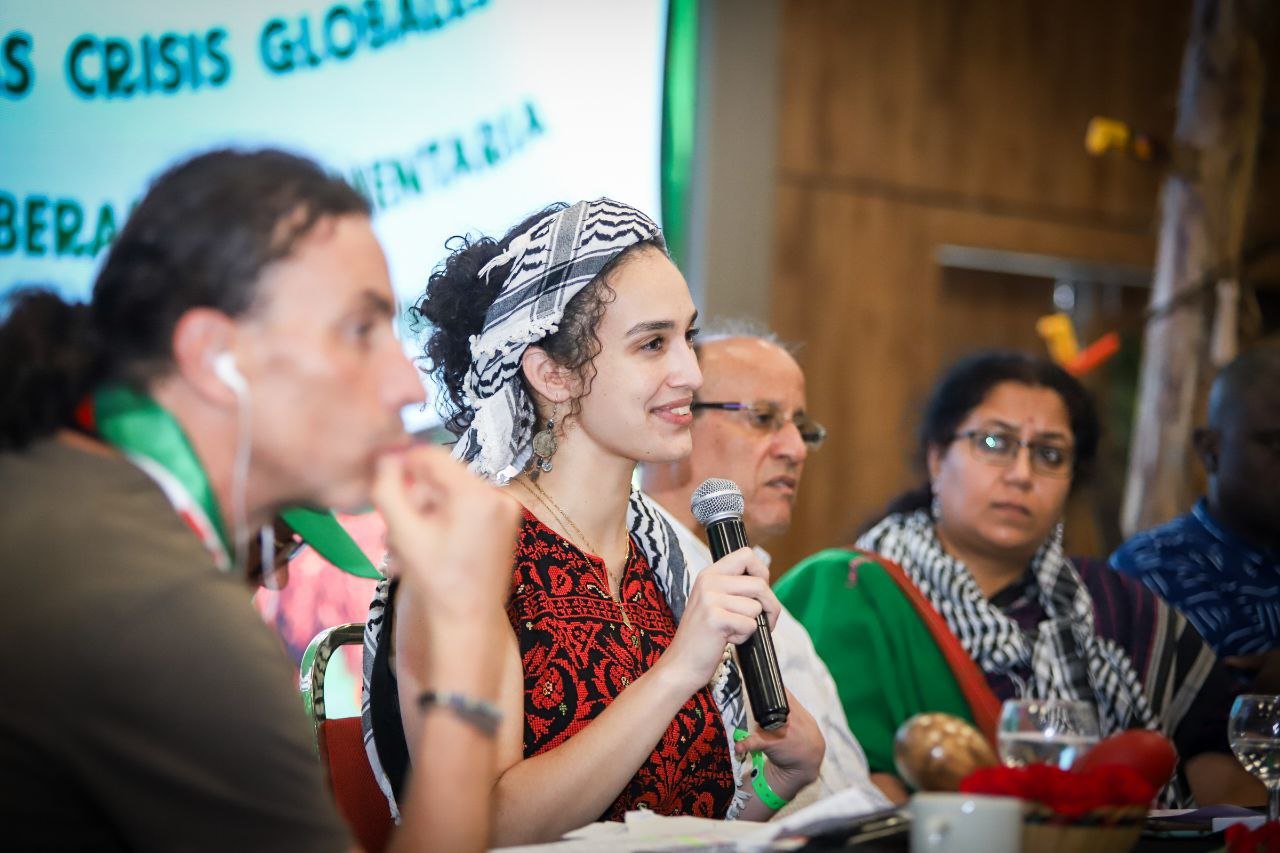(Bogota, December 4, 2023) La Via Campesina’s 8th International Conference, held in Bogotá, Colombia, after a six-year break due to the COVID-19 pandemic, was filled with excitement even before it opened. The conference opened on the 3rd of December, but before that, the Youth Assembly was held on the 1st of December, and the Women’s Assembly, Men Against Patriarchy meeting, and Gender Diversities meeting were held on the 2nd of December. The Men Against Patriarchy meeting and Gender Diversity meeting were held for the first time at La Via Campesina at an international conference and were a great example of how important diversity, equality, and solidarity are to the global peasant movement.
The 5th Youth Assembly, which took place on the first day, was organized under the slogans “Unity in Diversity, Young Peasants Change the World”.
First of all, Pramesh Pokharel from Nepal said, “There are a lot of social movements around the world, but I don’t think there’s one that’s as diversity-oriented as La Via Campesina. We’re here today to talk about the challenges that young people in agriculture and young peasants face in rural communities, and how young people are not able to own land. In particular, at the 5th Assembly, we will be electing youth delegates from each region to strengthen youth leadership. We will also collectively address how to design the agenda.”
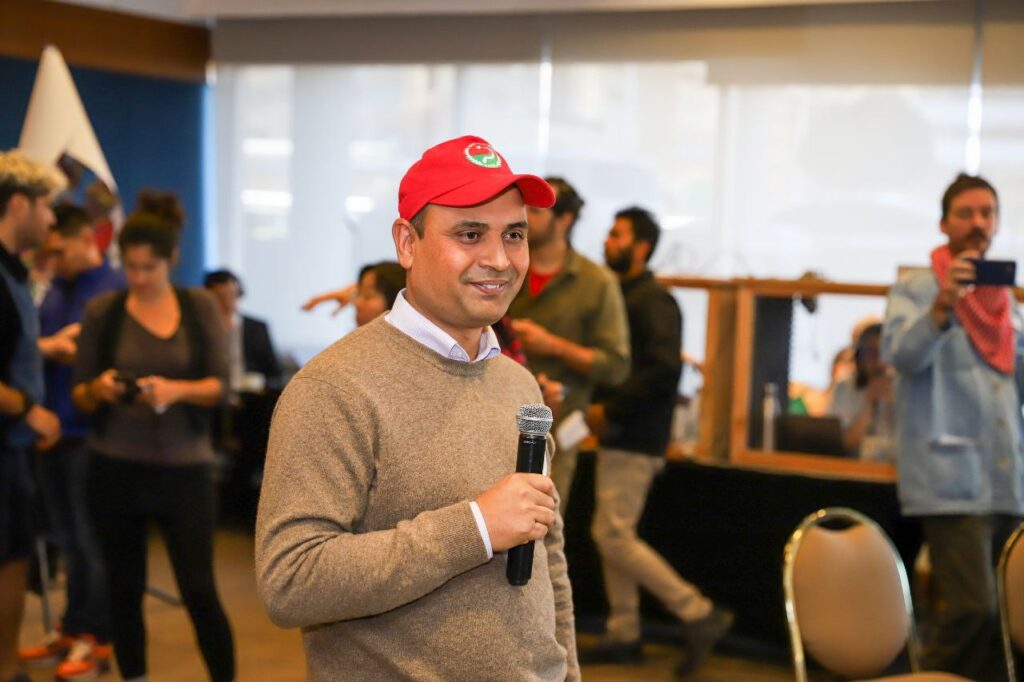
And then Chengeto Muzira, a youth of LVC’s International Coordination Committee (ICC) from Zimbabwe, said, “Youth have been advocating for peasants’ rights, especially youth rights and food sovereignty, by organizing the boycott of the 2021 UN Food Systems Summit together. We have done and will continue to do a lot of work to ensure that the voices of young peasants are heard as equals.”
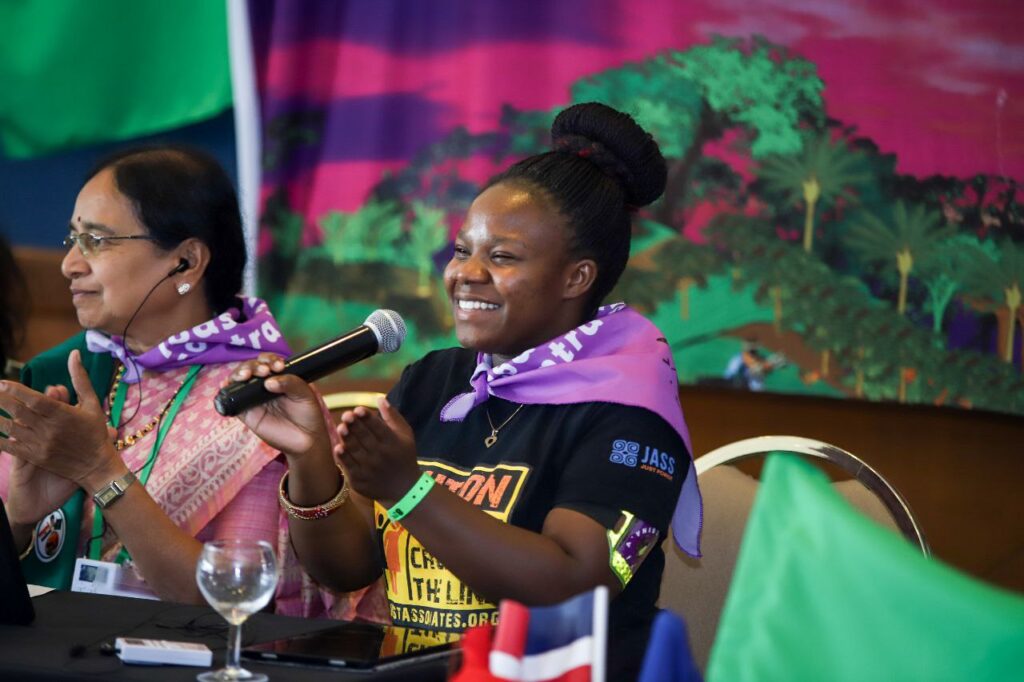
After regional and continental discussions on topics such as the crisis of generational change in agriculture, climate change and agroecology, critical analysis of new digital technologies in agriculture, and the implementation of United Nations Declaration on the Rights of Peasants and Other People Working in the Rural Areas (UNDROP) from a youth perspective, the young peasants finalized a draft action plan and a draft declaration.
In addition, La Via Campesina’s Youth Assembly highlighted that starting this year each region will appoint a youth representative to the ICC. This is a major victory and milestone for the the peasant movement and an indication of its commitment to ensuring the generational renewal and adding more youth voices in decision making spaces.
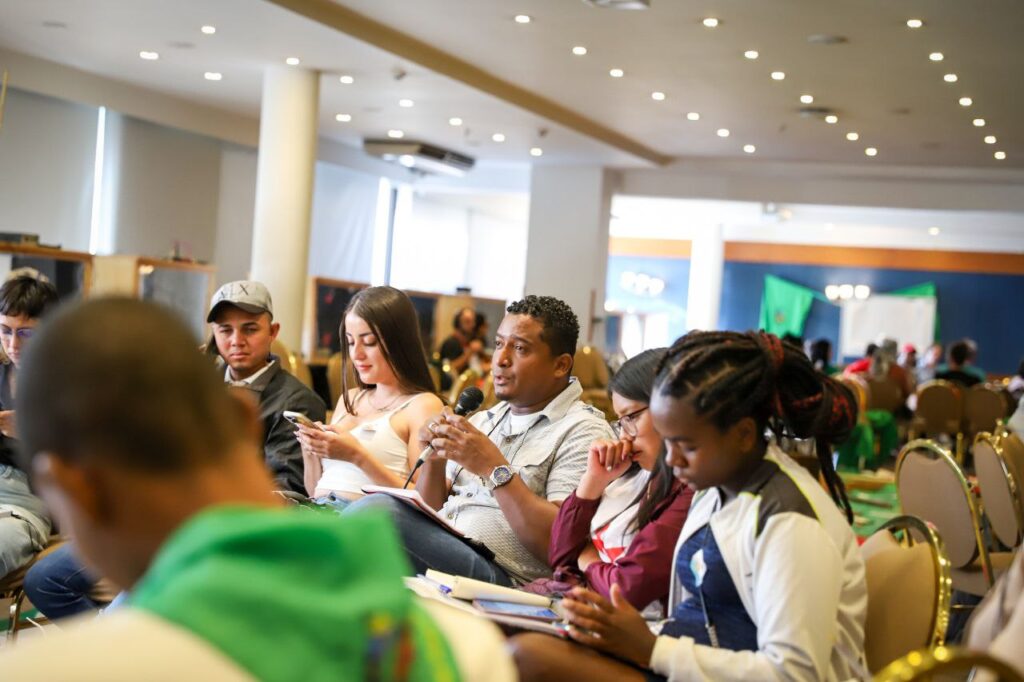
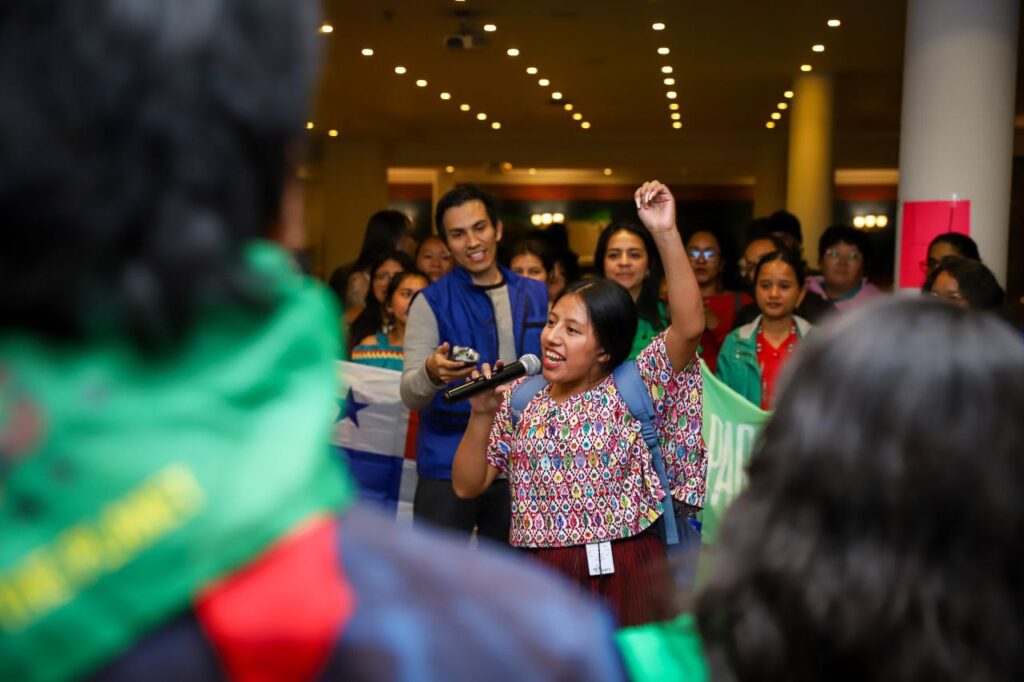
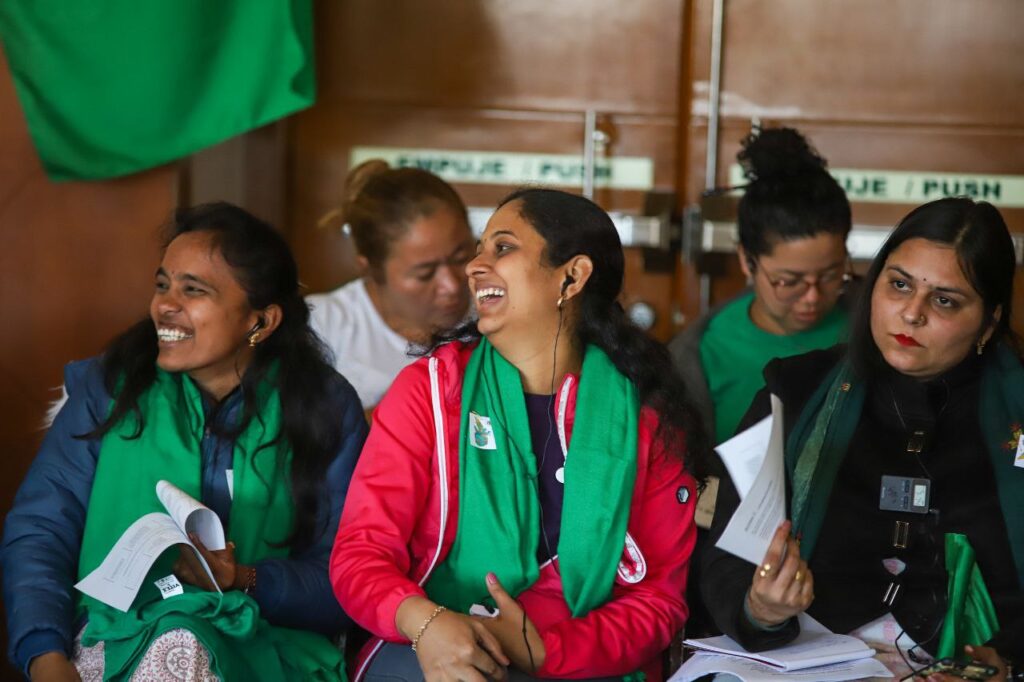
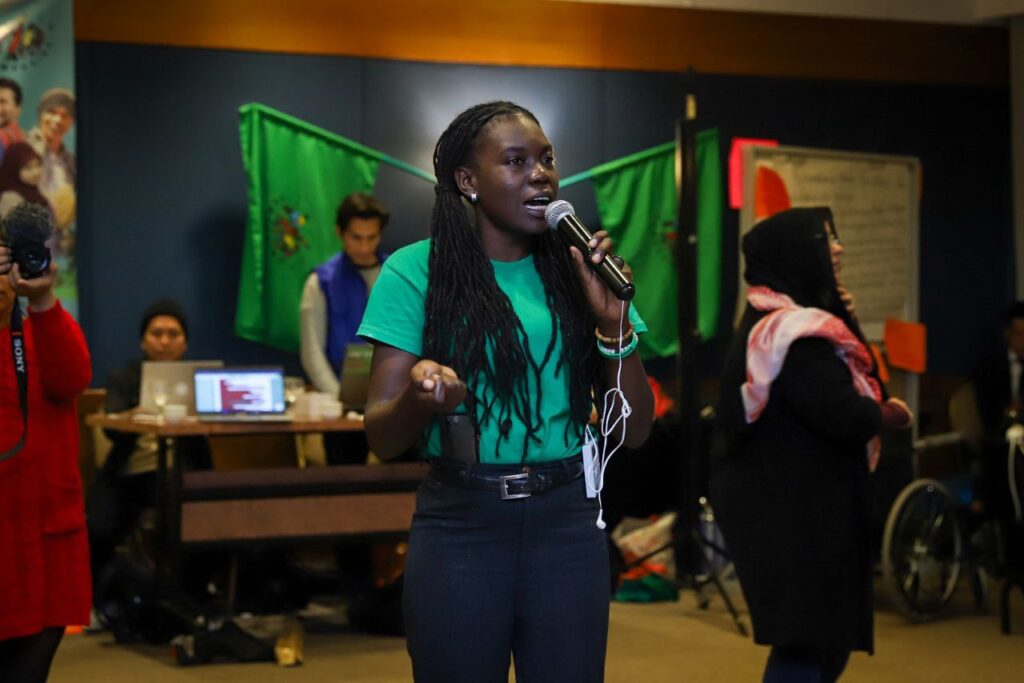
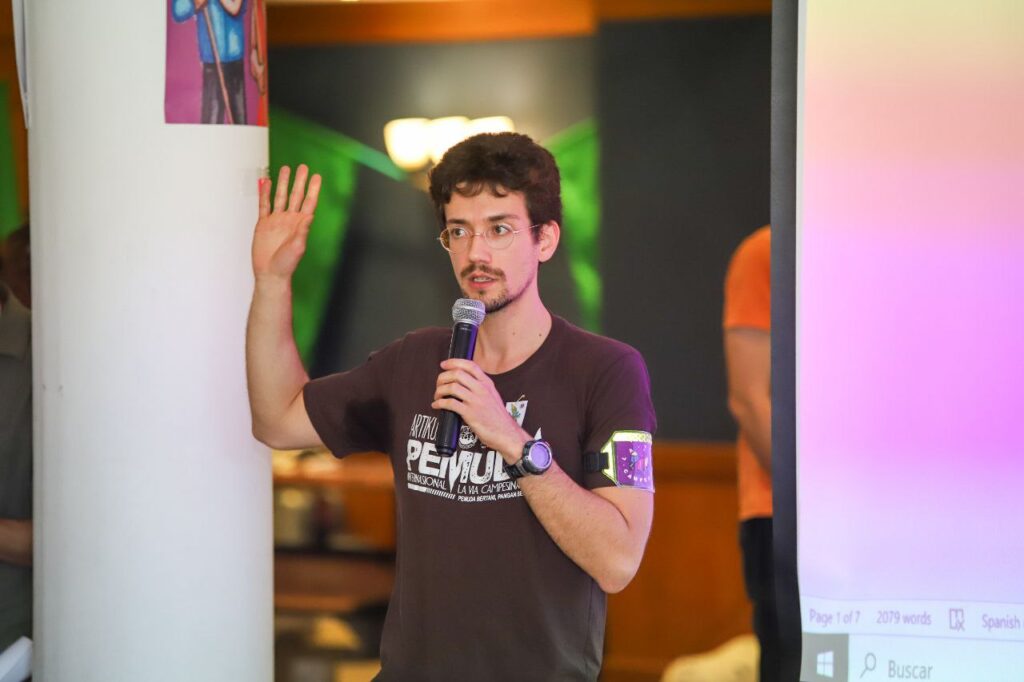
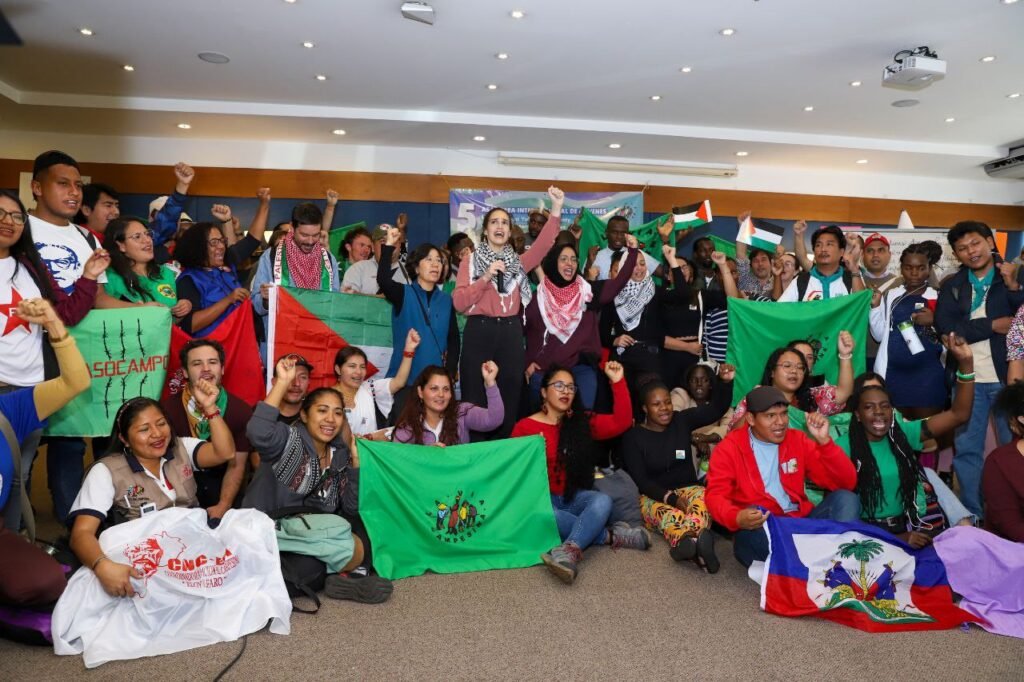
Also, the 6th Women’s Assembly, held on the 2nd of December, reflected on the 30 years of La Via Campesina and shared the history and achievements of the women’s peasant struggle within it.
Nettie Wiebe, a former ICC and one of the peasant leaders who fought for gender equality and equity -leading the women’s struggle within the peasant movement – said “I remember when the first Assembly was held in Mexico in 1996, we elected seven ICCs who were all men. From then on, it was my duty to speak out about the importance of women’s voices and how important they are. In 2000, for the first time, we had equal representation in the General Assembly. We, women peasants have always been marginalized and exposed to violence, but when we come together in solidarity, our presence is part of La Via Campesina and we can overcome any crisis. Let’s not forget this.”
Afterwards, former ICC Francisca Rodriguez, from Chile, who has made a significant contribution to La Via Campesina women’s movement, and youth and women ICC Anuka Vimukthi De Silva from Sri Lanka spoke about La Via Campesina’s work for women’s rights.
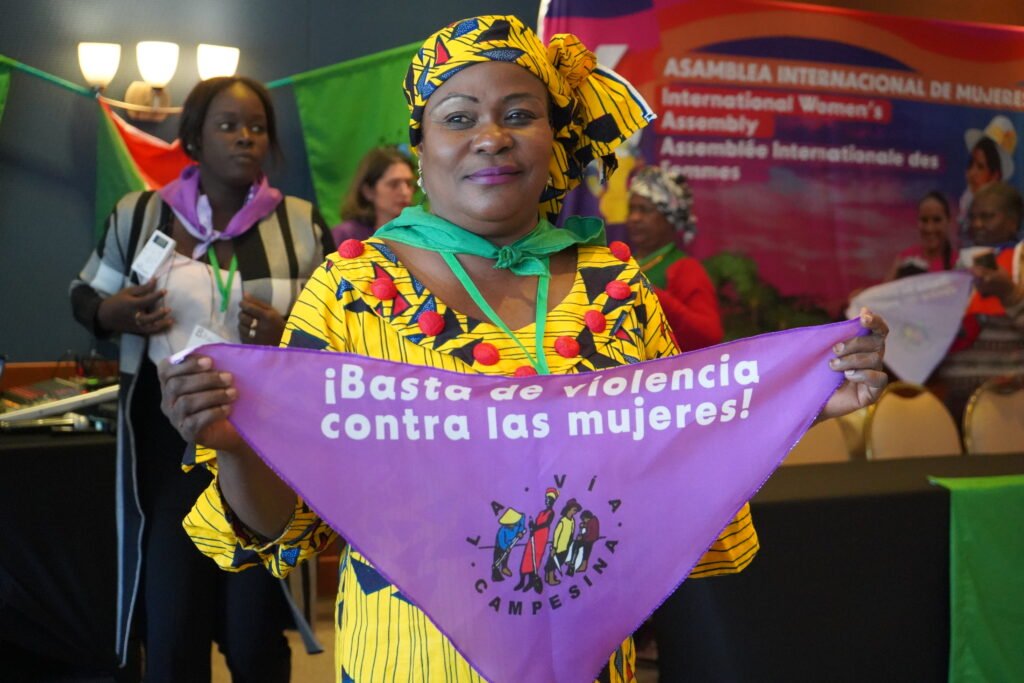
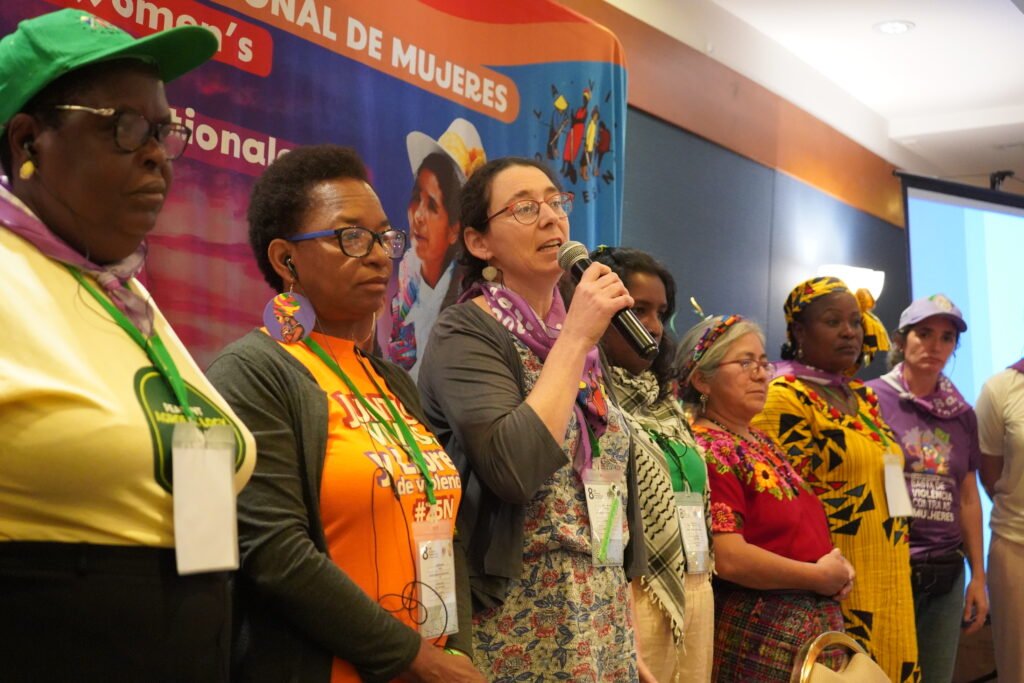
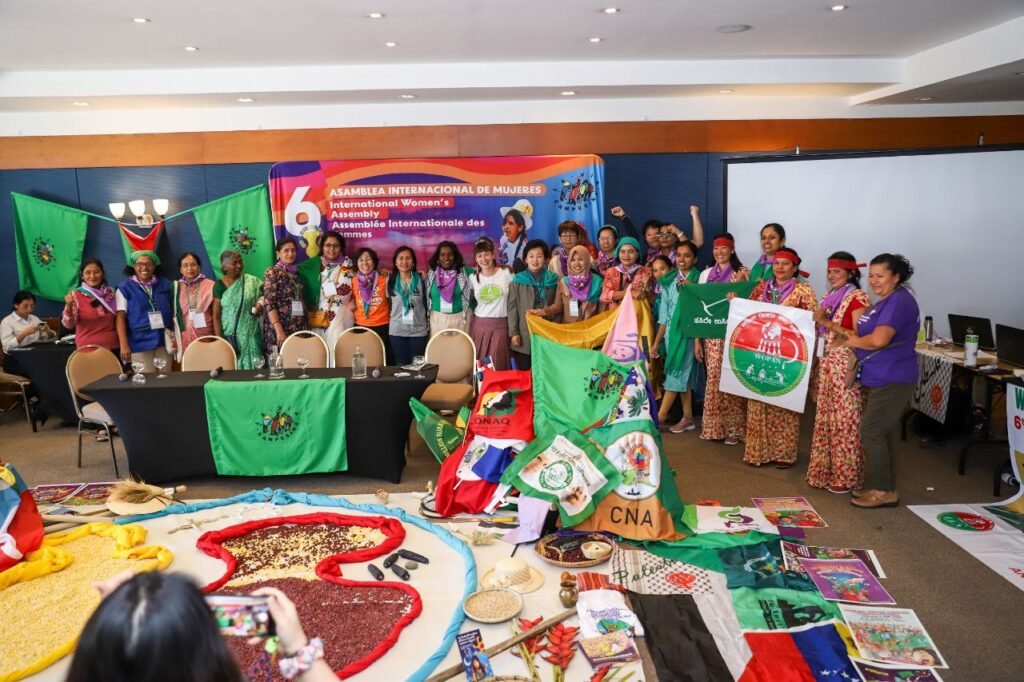
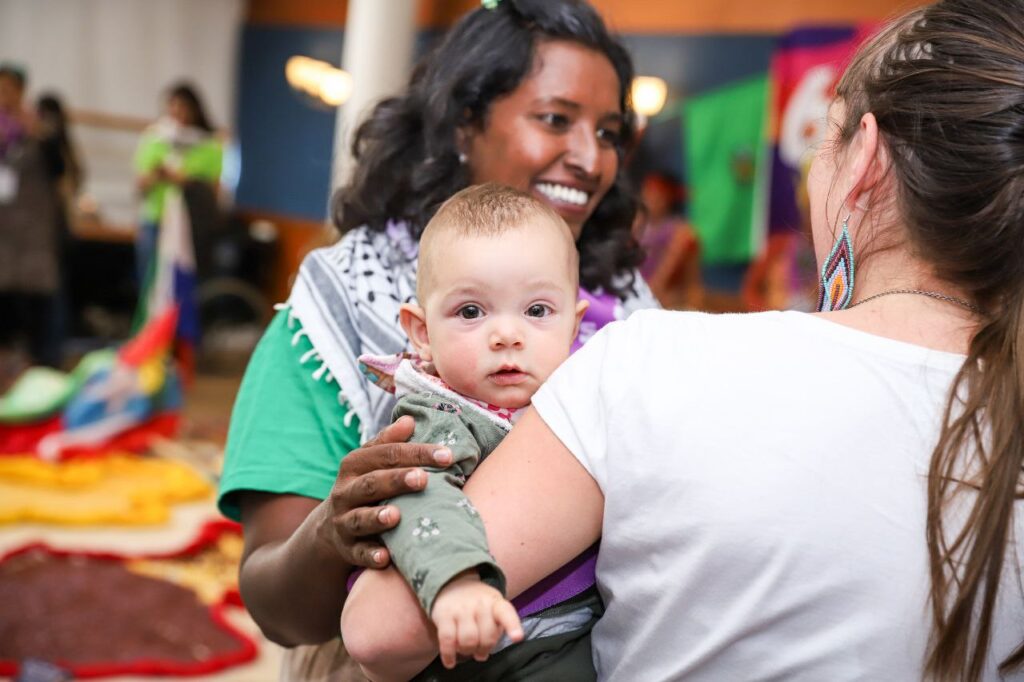
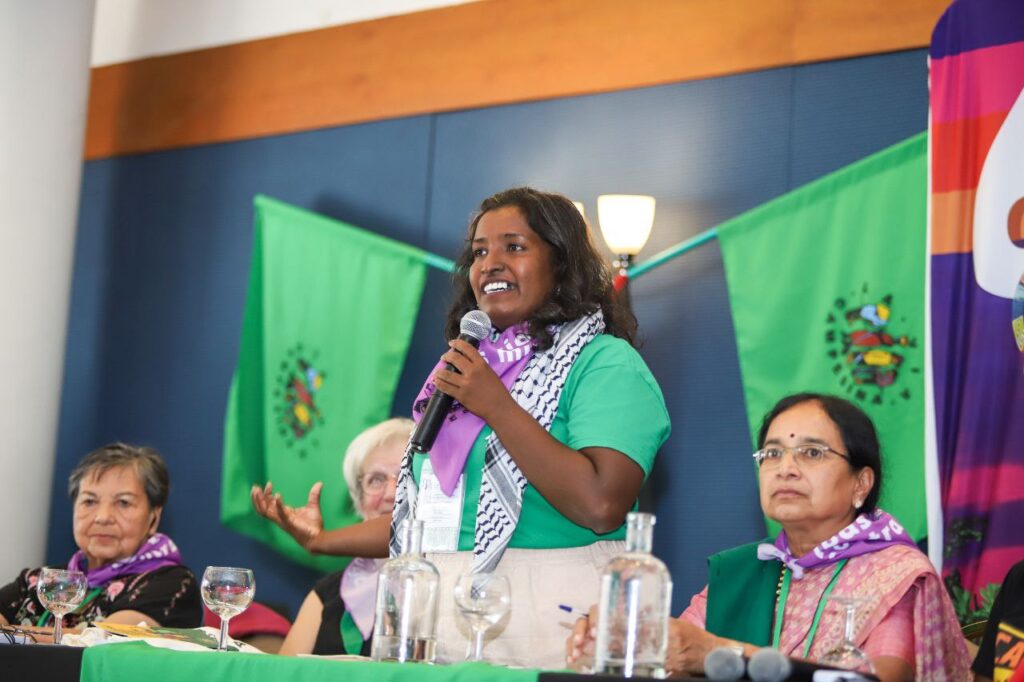
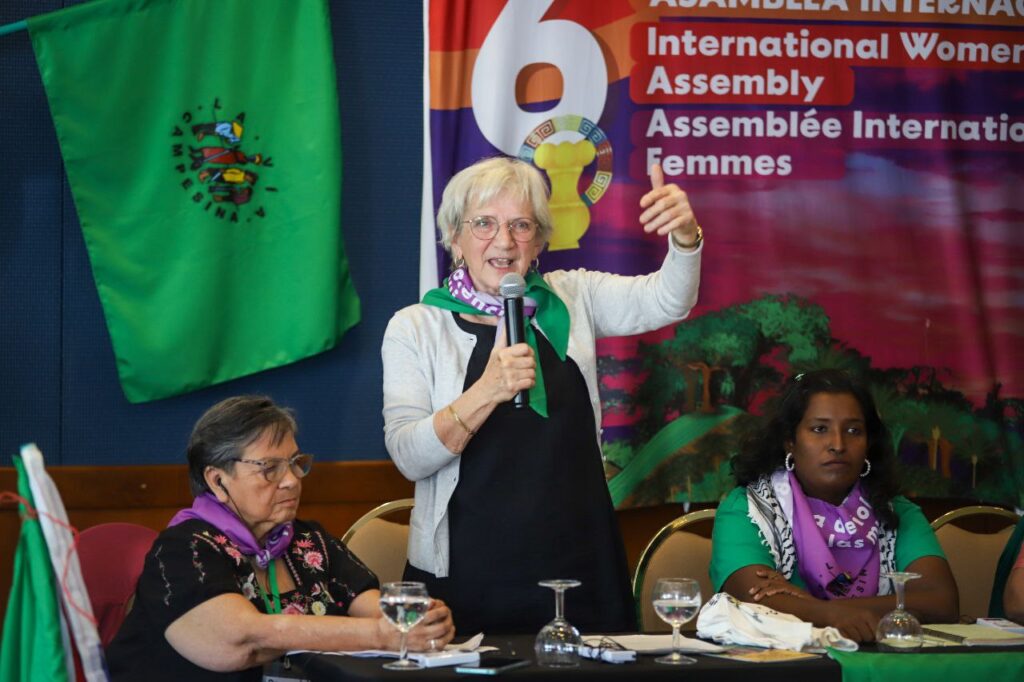
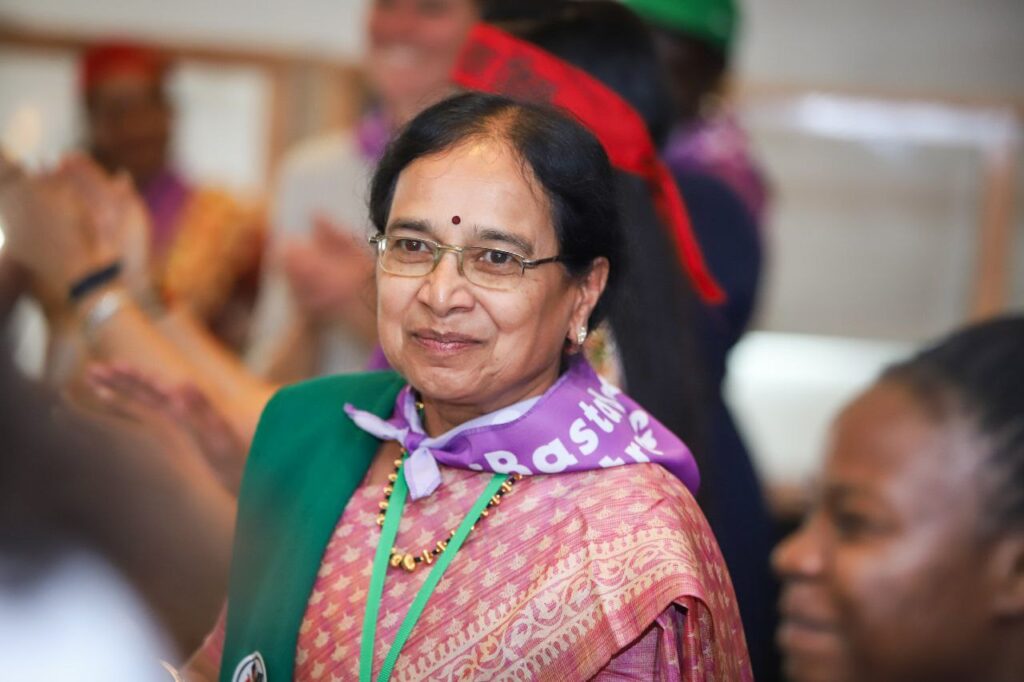
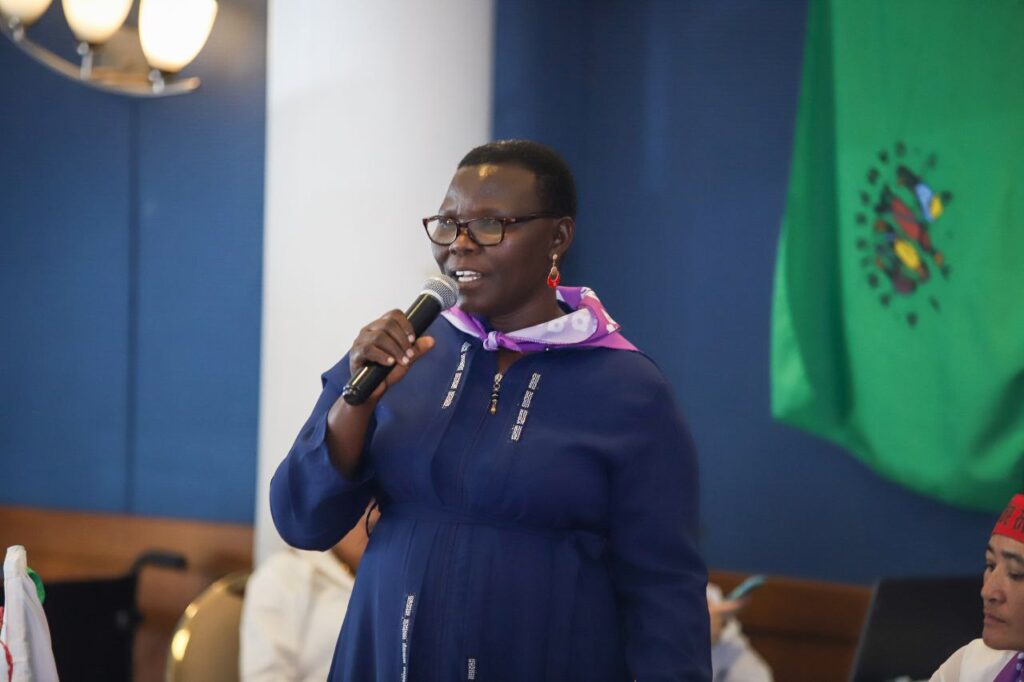
In addition, there were presentations on the continental situation, where Jeongyeol Kim, an ICC member representing Southeast East Asia, said, “peasant women are the main players in agricultural production and the maintenance and development of rural communities. However, we are underestimated and still have a low social status. In South Korea, peasant women account for 52% of agricultural labor, but they are still treated as helpers and perceived as the sole providers of domestic work. In particular, Asian peasant women face overt discrimination in land access and ownership, access to credit, access to information and participation, and physical, mental and cultural violence. Despite the challenges, Asian women have not given up on their efforts to lead independent lives and are making history through their collective organizing, struggle and resistance. Women are at the center of the native seed conservation movement and the agroecology and food sovereignty movement. Without women, the agroecology and food sovereignty movement is a fake.”
This post is also available in Español.

